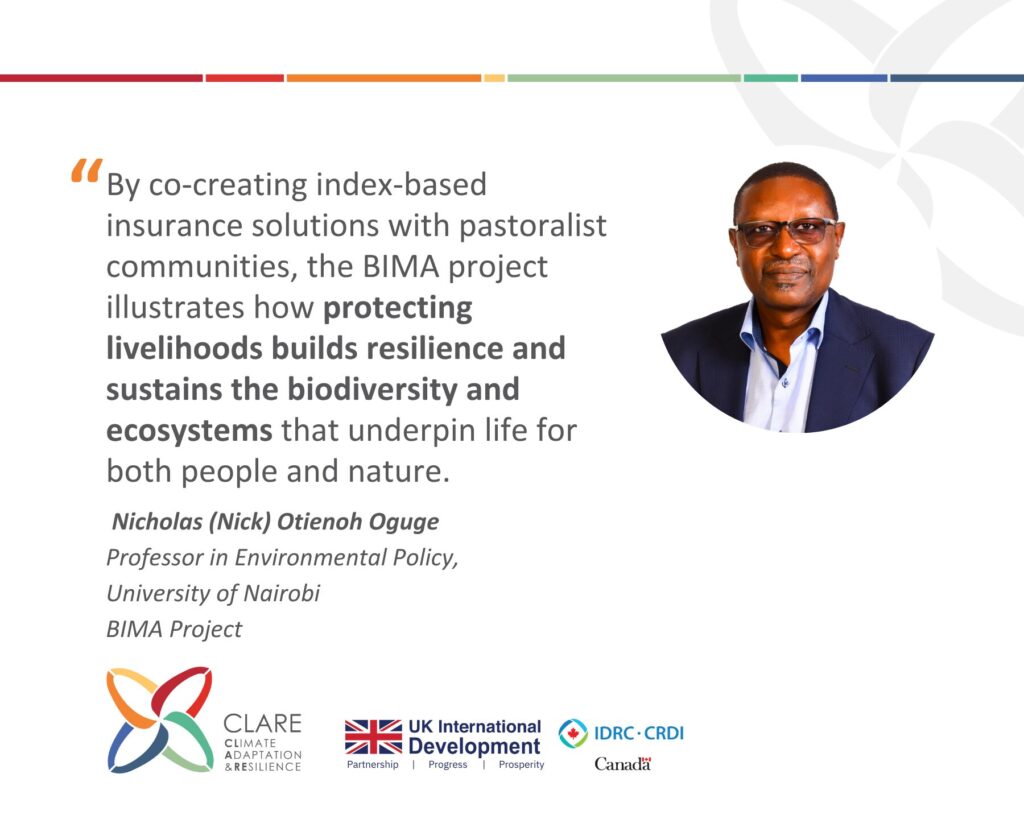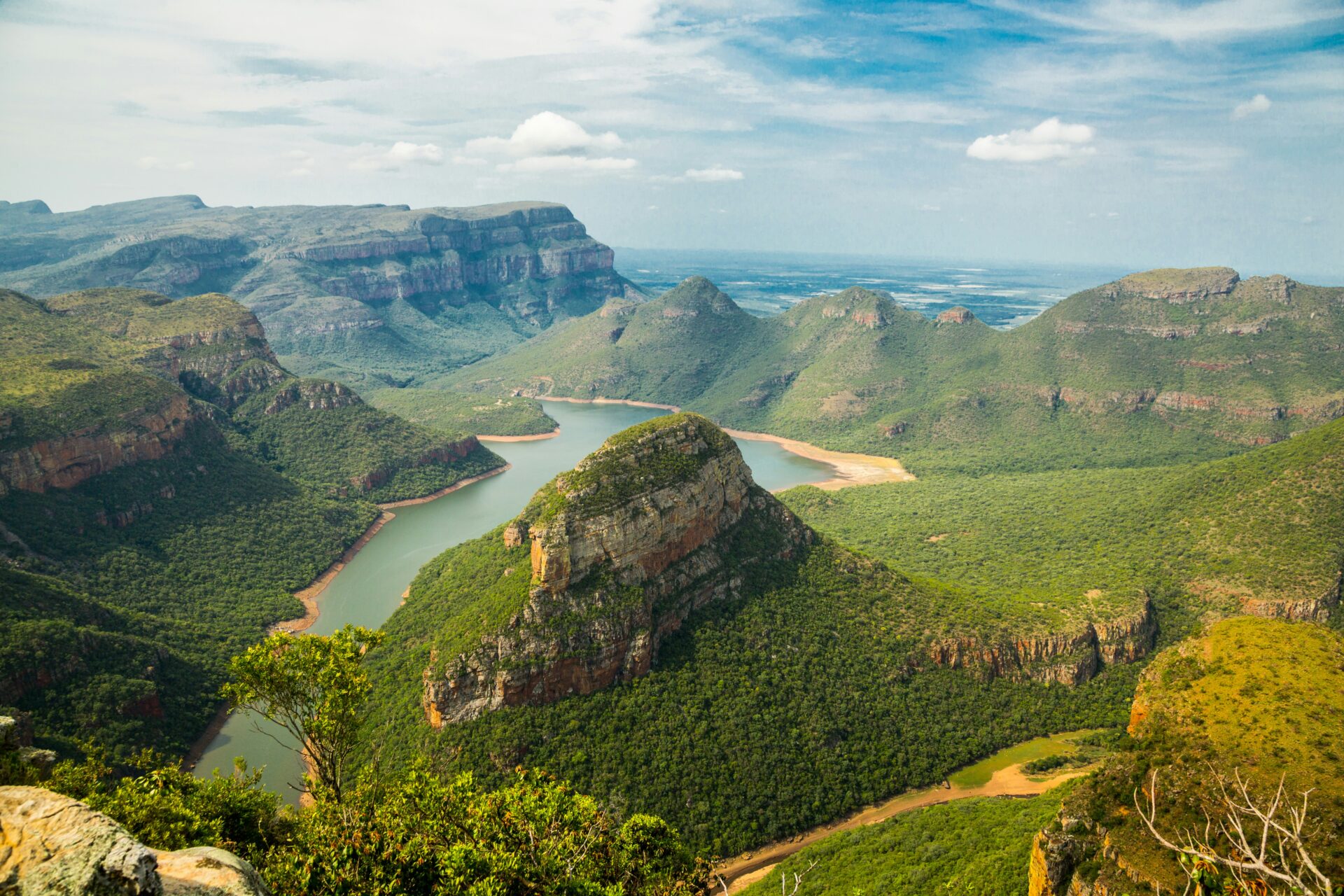Key contributions to IPCC AR7 to come from CLARE community
/
With the seventh assessment cycle of the Intergovernmental Panel on Climate Change (IPCC) well underway, many members of the CLARE research community are playing key roles in contributing to this critical scientific process. Through their engagement with the IPCC, CLARE community members are supporting research that will inform global decision-making on climate change, with the aim of strengthening overall climate resilience.
CLARE perspectives on AR7
Members of the CLARE community reflect on how they are supporting the seventh assessment cycle and the projected impact of their work:
What is the IPCC seventh assessment cycle?
As the United Nations body responsible for assessing the science related to climate change, the IPCC provides regular assessments of the scientific basis of climate change, its impacts and future risks, and options for adaptation and mitigation. The IPCC is currently undertaking its seventh assessment cycle (AR7, 2023-2029), producing major scientific reports to guide policymakers on climate impacts and solutions.
During this cycle, the IPCC will produce three Working Group contributions to the Seventh Assessment Report: the Working Group I report on the Physical Science Basis, the Working Group II report on Impacts, Adaptation and Vulnerability, and the Working Group III report on Mitigation of Climate Change. The IPCC is also producing a Special Report on Climate Change and Cities, among other upcoming publications.
CLARE leadership in the seventh assessment cycle
These large-scale IPCC reports rely on coordinating lead authors and lead authors, supported by chapter scientists who manage references, coordinate efforts, and facilitate diverse contributions. As part of CLARE’s engagement with the IPCC process, several members of the CLARE community are actively contributing to AR7 as coordinating lead authors (CLAs), lead authors (LAs), and Review Editors (REs), among other roles.
The following members of CLARE research projects are some of the CLARE community members contributing to AR7:
- Maria Beger of University of Leeds, UK (ClimateREEFS Project) as a LA for WGII, Chapter 15
- Shobhakar Dhakal of Asian Institute of Technology, Thailand (CLARE-ASEAN) as a CLA for IPCC SRCities, Chapter 2
- Denyse Dookie of the Grantham Research Institute at the London School of Economics, UK (BASIN Project) as a LA for WGII, Chapter 13
- Francois Engelbrecht of University of the Witwatersrand, South Africa (REPRESA Project) as a CLA for WGI, Chapter 7
- Kossi Hounkpati of University of Cape Town, South Africa (BAOBAB Project) as a LA for WGII, Chapter 15
- Catalina Jaime of Red Cross Red Crescent Climate Centre, Colombia (REPRESA Project) as a LA for WGII, Chapter 20
- Tamara Janes of the Met Office Hadley Centre, UK (MECHANICS Project) as a LA for IPCC SRCities, Chapter 4
- Richard Jones of the Met Office Hadley Centre, UK (MECHANICS Project) as a LA for WGII, Chapter 1
- Hans Charles Komakech of the Nelson Mandela African Institution of Science and Technology, Tanzania (BASIN Project) as an RE for WGII, Chapter 16
- Amina Maharjan of the International Centre for Integrated Mountain Development (ICIMOD) of Nepal (SUCCESS Project) as an LA for WGII, Chapter 20
- Yahaya Nazoumou of Abdou Moumouni University of Niamey, Niger (CLARITY Project) as a LA for WGII, Chapter 7
- Salma Sabour of Durham University, UK and University of Cape Town, South Africa (CoHeRe Project) as a LA for WGII, Chapter 7
- Chandni Singh of the Indian Institute of Human Settlements (IIHS), India (CLAPs Project) as a LA for the IPCC SRCities, Chapter 4 and an RE for WGII, Chapter 18
- Chris Trisos of University of Cape Town, South Africa (BAOBAB Project) as a LA for WGII, Updated Technical Guidelines
Broader CLARE engagement in the IPCC process
CLARE’s engagement in the IPCC process involves a range of further engagements. For example, CLARE supports the project “Enhancing inclusive Global South participation in the Intergovernmental Panel on Climate Change Special Report on Climate Change and Cities (Inclusive SRCities)”, which funds Chapter Scientists to support the CLAs from the Global South involved in the preparation of the IPCC Special Report on Climate Change and Cities.
This initiative works to bridge gaps in equity and representation, fostering a more balanced and inclusive assessment process that addresses the priorities relevant to stakeholders tasked with advancing climate action in cities, especially across the Global South.
In October 2025, CLARE also co-hosted an online training on how to become an IPCC Expert Reviewer, in collaboration with the IPCC Technical Support Unit (TSU). The training session was particularly targeted at Early Career Researchers and practitioners from the Global South, with the intention of encouraging participation in the IPCC review process.
CLARE and the second IPBES Global Assessment
Beyond CLARE’s engagement in the IPCC process, the CLARE community is also involved in another major scientific process with the Intergovernmental Science-Policy Platform on Biodiversity and Ecosystem Services (IPBES), and independent body established to strengthen the science-policy interface for biodiversity and ecosystem services. Like the IPCC, IPBES is tasked with producing assessments to inform environmental decision-making.
Under IPBES, work is underway on the Second Global Assessment of Biodiversity and Ecosystem Services, to be delivered in 2028. The Second Global Assessment will be a landmark undertaking intended to provide decision-makers with the best available evidence, knowledge, and policy options about biodiversity and ecosystem services.
Prof. Nicholas (Nick) Otienoh Oguge of the University of Nairobi, Kenya has been announced as one of three co-chairs of the Second Global Assessment. Prof. Oguge is a member of the CLARE research community, serving as a Principal Investigator for the BIMA project.

Published
CLARE Projects
CLARE Partners


